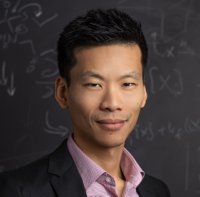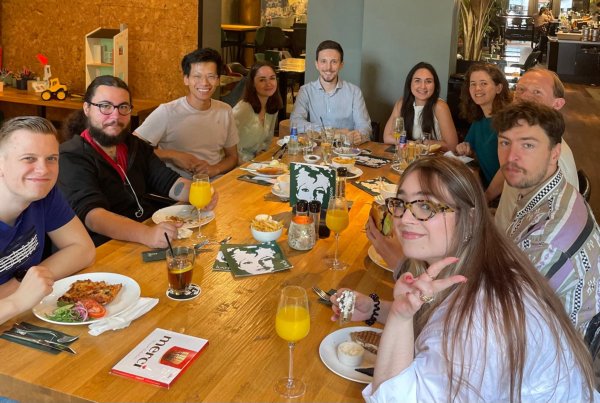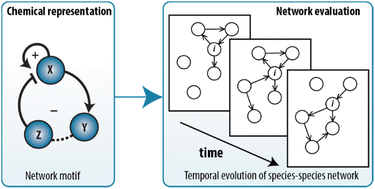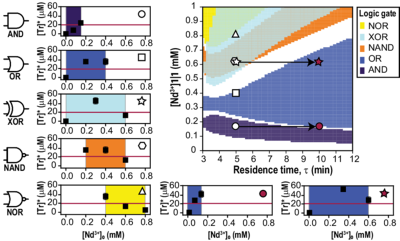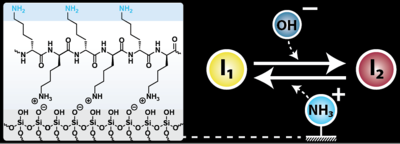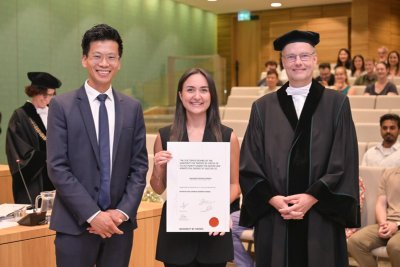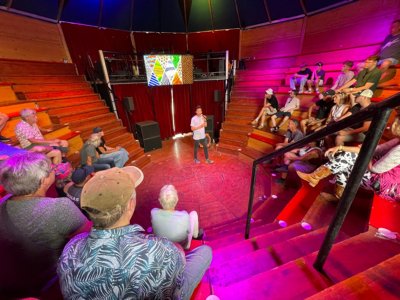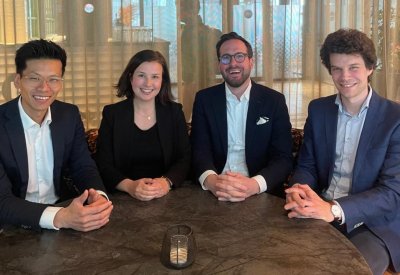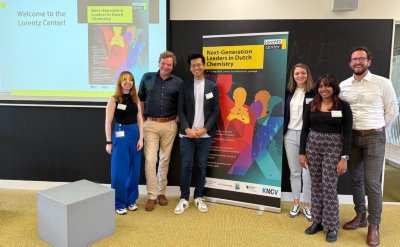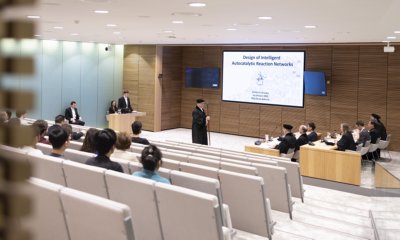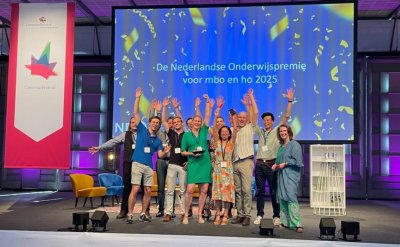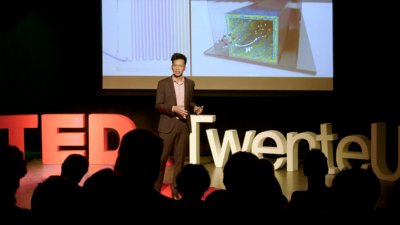WELCOME TO THE CRN LAB | The CRN lab is established in 2020 and is part of the Department of Molecules and Materials (MOLMAT) at University of Twente. |
| My name is Albert Wong. I aim to create an environment that fosters creativity and enthusiasm for science. My core activities center around lecturing chemistry courses (biochemistry, systems chemistry, nanochemistry, organic chemistry, and physical organic chemistry) and leading our research in exploring the rich dynamics of CRNs. Besides, I (co-)organise PhD courses at the UT and (inter)national symposia/conferences, and build a network of young academics as former board of the Young Academy Twente. |
WE AREresearchers with diverse backgrounds in Chemistry, Chemical Engineering, Computational Physics and Mathematics. We share a fascination for the idea that chemical reaction networks operate in harmony to govern living systems. Please check our team page for our members. [photo; Team building, Enschede, 2024] |
|
OUR GOALDesign chemical reaction networks (CRNs) capable of neuromorphic computing. |
OUR APPROACHWe work on three synergistic research directions in the CRN lab to understand how CRNs can memorize and process molecular information. Selected papers: |
|
|
|
|
|
|
See Publications | CRN Group for full list and doi's. | |
Join uS?Visit our vacancies page for possible interest. | |
NEWS & Impressions |
RESEARCH | EDUCATION & PUBLIC ENGAGEMENT | ||
July 4, 2025 Hazal Koyuncu succesfully defended her PhD thesis "Design of Local Chemical Feedback Systems". Prof. G. Berkhoffzaal, University of Twente, Enschede. Dr. Koyuncu developed a microfluidic approach to create localized feedback with the capacity to control dynamic exchange reactions. | July 20, 2025 Albert Wong presented at the festival Zwarte Cross, Universitent, Lichtenvoorde: In "Hebben moleculen gevoel voor ritme?" he explained how rhythm, which are expressed as patterns, are formed in Nature through interactions at the molecular scale. | ||
|
| ||
June 6, 2025 Albert Wong received funding from Knowledge and Innovation Covenant (KIC) program of the Dutch Research Council (NWO). Together with Michael Lerch (RUG), Evan Spruijt (RUN), Josefine Geiger (RUG), and many other partners, we will develop Recycling Enhanced Smart Programmable ON-Demand coatings (RESPOND)": Chemically programmable materials. | July 7-11, 2025 Albert Wong co-organized the first KNCV-NextGenChem Summit: "Next-Generation Leaders in Dutch Chemistry" Lorentz Center, Leiden. The aim of the summit is to develop a platform focused on cultivating the talent and leadership capabilities of future leaders in Dutch chemistry as leaders in an international environment. Check also our video on LinkedIn. | ||
|
| ||
April 1, 2025 Dmitrii Kriukov defended his PhD thesis "Design of intelligent Autocatalytic Reaction Networks". Prof. G. Berkhoffzaal, University of Twente, Enschede. Dr. Kriukov established that autocatalytic CRNs can display history-dependent behaviors and demonstrated that outputs from a CRN can be programmed kinetically and mapped onto various mathematical operations. | July 2, 2025 The educational initiative CLEAR: Chemistry Learning for Environmental Action and Responsibility at the University of Twente has been awarded the Dutch Education Award 2025 (the highest national award for education). check also the interview with C2W and YouTube for our story. | ||
|
| ||
January 16, 2025 Our paper (#16) on "Identify structures underlying out-of-equilibrium reaction networks with random graph analysis" is published in Chemical Science. In this work, led by Éverton da Cunha & Yanna Kraakman, we demonstrate the first steps towards creating a new mathematically-founded characterization method for Chemical Reaction Networks. This work is a result of a joint effort between the CRN research group and the Mathematical Operation Research group from Clara Stegehuis. | June 4, 2025 Albert Wong presented "How chemists create computers" at TEDx Harry Banink theater at Saxion, Enschede. Can chemistry uncover new possibilities to compute? Albert Wong highlights the crucial (one) experiment in his laboratory which broke the traditional chemistry frame. Networks of chemical reactions allow for continuously changing processes, opening an uncharted territory for chemistry and science at large. | ||
|

